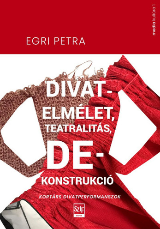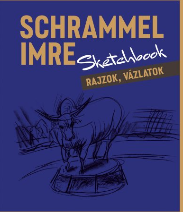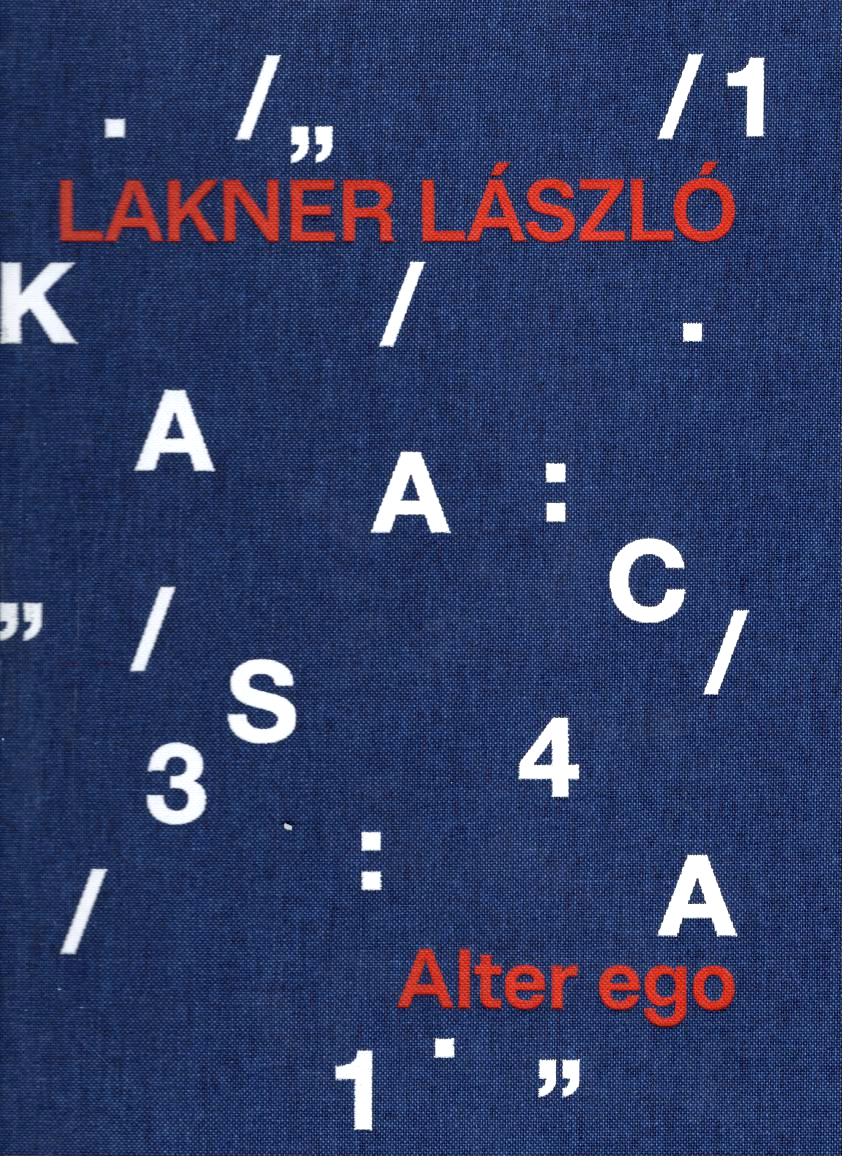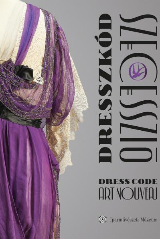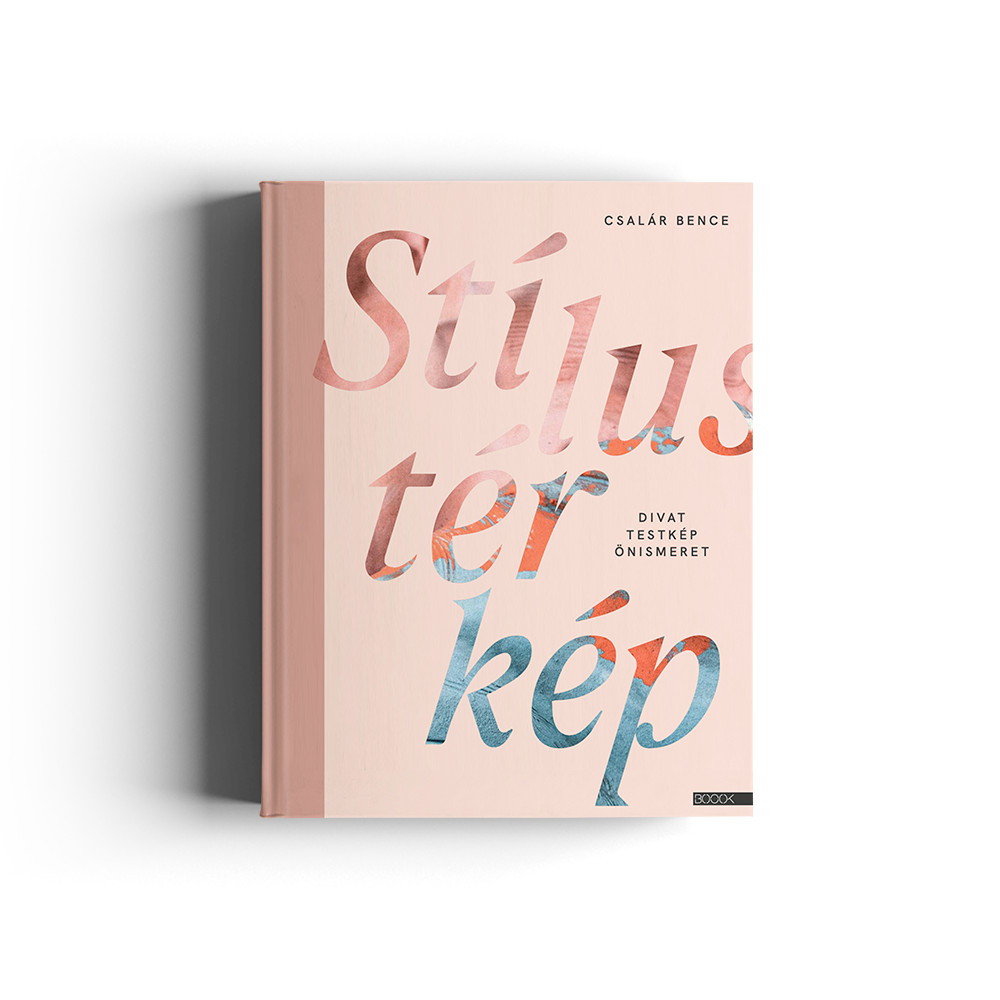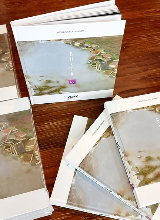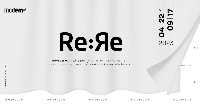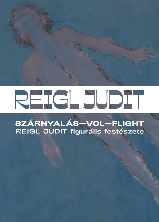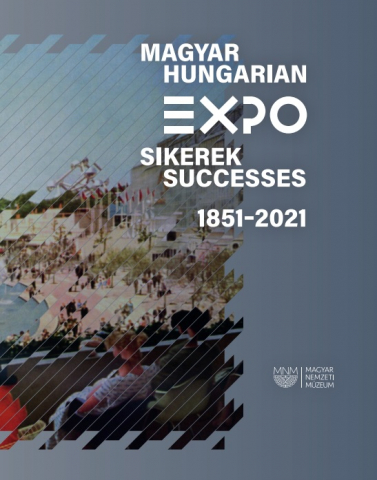Könyvajánlók
Megtervezett érzés avagy élet a márkákon innen és túl
Szalay Miklós
Mióta logó a logó? Mitől jó és miért értékes? És mi történik akkor, ha
egy tervező grafikus nem a logótervezés fortélyaira keresi a választ,
hanem a márkák belső működését firtatja? Nem lesz trendi, viszont
megérti, hogyan hat az, amit tervez. Ez a könyv leás a vizuális
érzékelés alapjaiig, körbejárja az identitás fogalmát, bepillant a
márkák működési mechanizmusába, és rendszerezési sémát ad a tervezők,
kreatív szakemberek kezébe. A vizuális identitás megtervezett érzés. A
kreatív szakmákban tevékenykedők mindezt a márkafogalommal azonosítják. ..
tovább >>>
Időgép : új válogatás a Ludwig Múzeum gyűjteményéből : 2020.09.01. - 2023.12.31.
Az időgép egy olyan, egyelőre csak elméletben létező szerkezet, melynek segítségével a múltba vagy a jövőbe repíthetjük fizikai testünket. A virtuális időutazás ezzel szemben hosszú előzményre tekint vissza: a művészek évszázadok óta ábrázolják az elmúlt és jövendő korokat saját tudásuknak, elképzeléseiknek, vágyaiknak megfelelően az irodalom, a képzőművészet vagy a film eszközeivel, miközben műveikben dokumentálják saját korukat is. A Ludwig Múzeum új kiállítása nem az időutazás tudományos-fantasztikus lehetőségével foglalkozik, hanem az idő és a művészet viszonyát vizsgálja különféle szempontokból, és magukat a műveket tekinti olyan időgépeknek, melyek lehetővé teszik számunkra a mentális utazást. Az Időgép című kiállítás eredeti szándékai szerint a jelenből kiindulva vizsgálta volna a múzeum gyűjteményét, a kétezres évek munkáit állítva a fókuszba...
tovább >>>
Divatelmélet, teatralitás, dekonstrukció : kortárs divatperformanszok
Egri Petra
Dr. Egri Petra könyve a kortárs
divatipar egyszerre varázslatos és megtévesztő eszközeiről szól.
Divatfilmekről, divatperformanszokról, az egyre inkább teret hódító
digitális divat (NFT) és a block chain kapcsolódásának legújabb
trendjeiről. A kötet ezeken a médiumokon keresztül olyan márkák
kommunikációs trükkjeit elemzi, mint a Dior, a Moschino, vagy a Balmain.
A neves külföldi divattervezők, Alexander McQueen, Maison Martin
Margiela, Hussein Chalayan vagy Rei Kawakubo munkái mellett hazai
példákra is kitér, főként Rotschild Klára és Király Tamás jelentőségére
és alkotásaira. A kötet lapjain egyaránt megelevenedik a piacnak
behódoló és a radikálisan lázadó divat világa is.
tovább >>>
Sketchbook : rajzok, vázlatok
Schrammel Imre
„[…] gyanítom, hogy a vizuális jelek megelőzték az emberi beszédet...” – írja jelen könyv bevezetőjében a különféle tudományok iránt örökké érdeklődő Schrammel Imre. És valóban így van: a különféle kultúrák jelbéli kifejezéseit kutató ikonográfusok megfejtései és a máig használt kínai képes betűk ékes bizonyítékai ennek. A modernkori íráselemzők, a grafológusok pedig állítják, hogy maga a kézi írásmód gazdag térképét adja az emberi karakternek, pszichének.
No és a Művész rajzai? Nagyon különleges lehetőséget fedezhettünk föl, amikor 1974-ben Schrammel kézzel írt naplólapjaiból a nyomdai szöveg illusztrációjaként néhányat megjelentethettünk. Újabb felfedezést aztán a 2014-ben kiadott Napló című, vaskos kötet révén szerezhettünk, amelyben a szituáció ihlette rajz és kézírás egymással összefonódó hatása elementáris erővel mutatja Schrammel Imre belső látásának, bravúros képi és írásbeli kifejezőképességének együttesét. A rangos magyar és nemzetközi díjjakkal elismert művészről ez újabb, különleges könyv ismét más élményt nyújt: egyszerre szép, tisztelgő és megható. A most kilencvenéves örök újító művész úgy mutatja be válogatott rajzain és kommentárjain keresztül mesterségbeli látásmódjának fokozatos alakulását ifjúkori kezdőlépéseitől indítva a jövőbeli művészeknek, ahogy csak egy őszinte Pedagógus, és egykori mestereit megbecsülő Művész képes. Ezzel a kötettel a Kiadó egy újabb, a szépséget megragadni vágyó alkotó beláthatatlan gazdagságú univerzumába avatja az olvasókat.
tovább >>>
Lakner László : Alter ego
Lakner László a magyarországi neoavantgárd legfontosabb alkotói közé tartozik: művészetét tematikus és stiláris sokrétűség, folyamatos kísérletezés jellemzi. Életművén belül gyökeresen eltérő stílustendenciák férnek meg egymás mellett, amelyek azonban nem kizárják, hanem inkább kiegészítik egymást. Lakner bizonyos művei köthetők a szürnaturalizmushoz, a pop arthoz, a fotórealizmushoz, a konceptualizmushoz, a szkripturális karakterű informel festészethez, majd egyre hangsúlyosabbá válik az életműben egy posztkonceptuális szemléletű – oldottan geometrikus, gyakran betű- és szövegalapú – festőiség...
tovább >>>
Dresszkód: szecesszió
Csepregi Noémi
A Dresszkód: Szecesszió című kiállítás az 1895-1915 közötti időszakot fedi le. Ehhez megközelítőleg 60 műtárgyat válogatott össze a muzeológus – estélyi, nappali és szabadidős női viseleteket. Két darabot kölcsönzött társosztálytól: az adattárból egy jelmezes estélyre szóló meghívót, valamint egy gyönyörű szecessziós nyakéket az ötvösgyűjteményből. A katalógusba bekerült néhány olyan műtárgy is, amelyet 2021-ben a Ráth György-villa helyi adottságai miatt nem tudott a múzeum bemutatni...
tovább >>>
Stílustérkép : divat, testkép, önismeret
Csalár Bence
Csalár Bence immár harmadik könyve a fenntartható divat egyik legfőbb pontjára fókuszál egy nagyot, nevezetesen az önismeretre, amely elengedhetetlen része minden változásnak, legyen szó egy fenntarthatóbb gardróbról, tudatos öltözködésről vagy önmagunk mélyebb megismeréséről. Sokszor beszélünk arról, hogy nem szabad lemondanunk megunt ruháinkról, érdemes új szemmel nézni rájuk, átalakítani, formálni, szeretni minél tovább. Ez hatványozottan igaz önmagunkra is, akár a belsőnkről, akár a külsőnkről van szó. Éppen ezért a szerző ezúttal egy, a selyem és lenvászon alatt rejlő mélyebb utazásra invitálja az olvasót. Egyúttal pedig arra biztat mindenkit, hogy habár lehet egy adott keretrendszer vagy mások elvárásai szerint öltözködni, a nap végén úgyis csak az számít, mi hogyan érezzük magunkat a bőrünkben..
tovább >>>
Műveljük kertjeinket!
Bukta Imre
A kortárs magyar képzőművészet legnagyobb hatású, nemzetközi viszonylatban is jelentős mesterének, Bukta Imrének kiállítása, Műveljük kertjeinket! címmel. A művész születésének 70. évfordulója alkalmából létrejött tárlaton kizárólag új művek jelennek meg. A művész a legkorszerűbb technikákra épülő látvánnyal közvetíti azt a világot, ami körülöleli őt a vidéki Magyarországon. A kivételes művészeti esemény több mint 1000 m2-en, a Godot Kortárs Művészeti Intézet óbudai, négyszintes kiállítóterében látogatható...
tovább >>>
Re:Re : művészi újrajátszás : az újrajátszás művészete : 2023. április 22. - szeptember 17.
A tárlat a művészi újrajátszások – ún. artistic reenactmentek – működés- és létmódját, antropológiai, szociokulturális, (művészet)történeti kontextusait kívánja feltárni. Olyan sajátos, döntően részvételen és együttműködésen alapuló performatív eljárásokat, mint amikor a művész előtérbe állít egy már lezajlott történést, vagy megelevenít egy általa közvetlenül nem megtapasztalt, de a kulturális emlékezethez hozzátartozó eseményt, esetleg újrabeállít, új kontextusba helyez egy (mű)tárgyat. Ekkor a múltra való hivatkozás nem pusztán a történelem és a megtörténtek megerősítése vagy épp öncélú újra át- és megélése, hanem az itt és most szempontjából mindig másként hozzáférhető és megtapasztalható emlékkép és hagyomány kritikai újrafelfedezése is...
tovább >>>
Szárnyalás - vol - flight : Reigl Judit figurális festészete
Reigl Judit születésének századik évfordulóját kiállításokkal ünnepli számos európai és hazai múzeum. A Kiscelli Múzeum–Fővárosi Képtár tárlata a berlini Neue Nationalgalerie és a budapesti Szépművészeti Múzeum kiállításait köti össze: míg az előző a művész legismertebb alkotói korszakát, az 1950-es és 1980-as évek közötti festményeit tekinti át, az utóbbi Reigl munkásságának első és utolsó éveiből válogat. A Kiscelli Múzeum tárlata e két kiállítás törzsanyaga közötti periódusra fókuszál, és első ízben mutatja be, hogy milyen jelentős helyet foglalt el Reigl Judit egész életművében az emberábrázolás.
tovább >>>
Hungarian EXPO successes, 1851-2021 : exhibition catalogue
ed. by Vilmos Gál
1851-ben egy magyar szobrász Engel József Az amazonok harca az Argonauta ellen
című szobrával szerepelt a londoni világkiállításon. Az alkotást nem
más, mint az első expó kezdeményezője, Albert herceg vásárolta meg és
azóta is a brit királyi család tulajdonában van. Ezzel a legmagasabb
rangú elismeréssel kezdődött Magyarország 170-es éves világkiállítási
sikereinek története, amely mind a mai napi tart. 2021-ben a dubaji
expón a Csernyus Lőrinc által tervezett magyar pavilont a Táplálni a világot, energiát az életnek téma legjobb interpretálásáért díjazták.
A Magyar EXPO sikerek 1851–2021 című kiállításhoz kapcsolódóan
megjelenő kötet a fentiekhez hasonló történeteknek és alkotóknak
szentelt tanulmányok mellet Magyarország expószerepléseinek legteljesebb
dokumentációját közli. A szerkesztő, Gál Vilmos többéves kutatómunkáján
alapuló katalógusban nemcsak a sikerrel szerepelt műalkotások kaptak
helyet, hanem az elnyert díjak, oklevelek és számtalan egyéb,
kuriózumnak számító vagy mára feledésbe merült emlék, amely mind a
magyar kultúra gazdagságáról és a magyar leleményről mesél.
tovább >>>
AttilaFK : art, architecture, design
ed. by Gábor Rieder, Attila F. Kovács
Különleges, misztikumra fogékony látásmódját és művészeti ágakon átívelő jellegzetes kifejezésmódját mutatja be az AttilaFK / art, architecture, design című „életműkönyv”, ami rendhagyó kialakításával, ezüst táblák közé zárt fekete testével nemcsak feltárja F. Kovács szerteágazó univerzumát és tervezői gondolkodásmódját, de maga is művészkönyvként válik az életmű részévé.
tovább >>>

